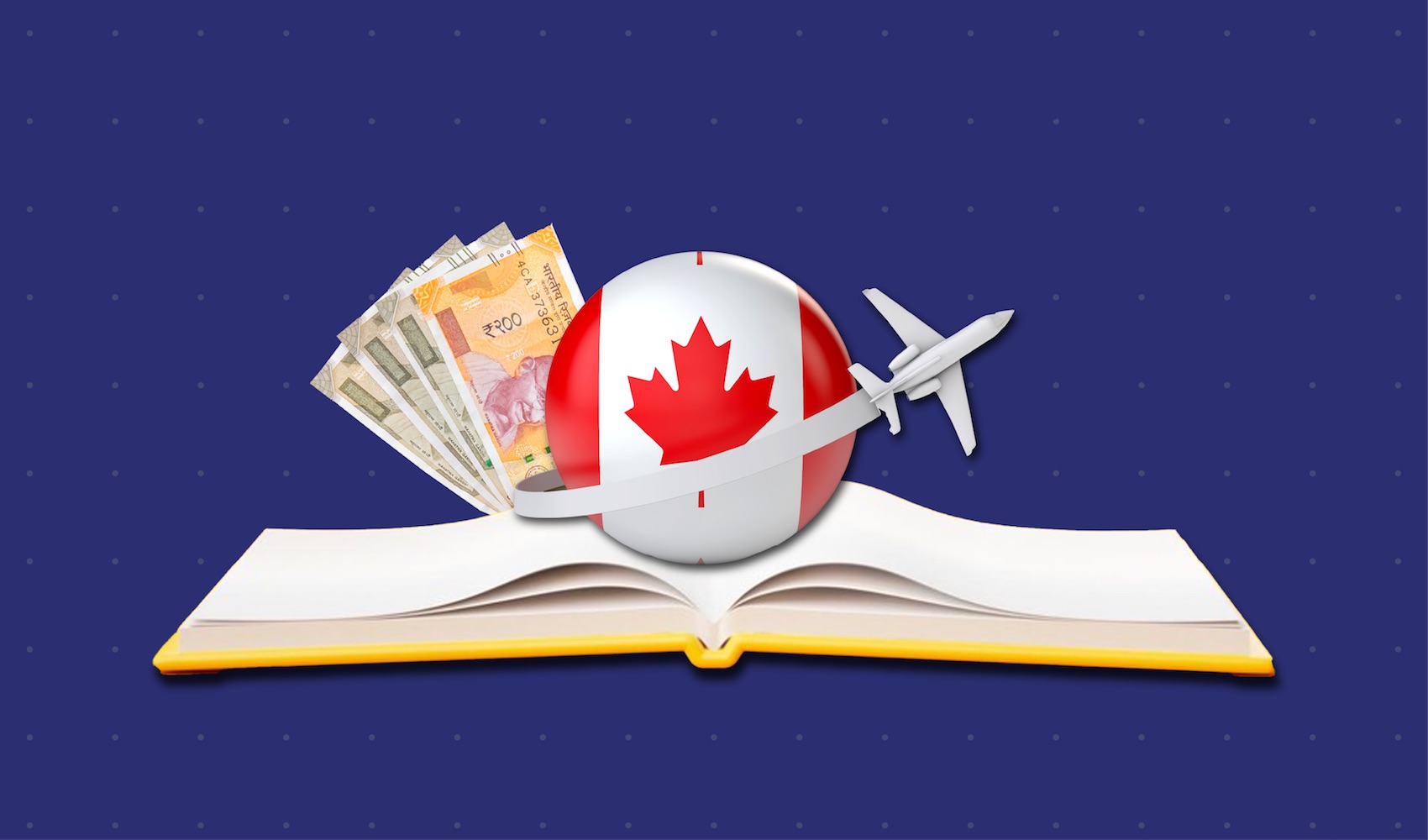Summary
- If you have earned a postgraduate degree like an Ms in Australia, you can qualify for a special work visa category.
- This is because the country is surrounded by the ocean earning a reputation as an island continent.
- Here is an overview of a few of the categories of visas that are available.
Why do a Master’s in Australia?
Home to some of the best universities in the world
Eight Australian institutions rank among the top 150 in the world, demonstrating the high caliber of education in this nation. Institutions have also produced globally significant research and have great labs and equipment.
Quality of life
Australia is home to 4 out of the 10 best cities to live in the world. Citizens get free healthcare and the infrastructure is great. Hence, it presents a great opportunity for you to settle there.
If not, you will still have a great time for the duration of your education.
Environmental Science Research opportunities
Australia is especially a good fit for Indians who want to study environmental science. This is because the country is surrounded by the ocean earning a reputation as an island continent.
In total, Australia has 8,222 islands. You can become a marine biologist who has the golden chance to explore the Great Barrier Reef.
Easy transition
Like the Indian education system, the Australian Master’s degrees are modeled on the British degree system. Hence, the transition is easy. You can get into most Master’s programs after a 3-year Bachelor’s unlike the U.S.
Additionally, it uses a three-tiered degree structure. Meaning, an undergraduate Bachelor’s degree is followed by postgraduate Master’s degrees after which you can pursue a PhD.
Many Australian degree programmes also have names that are similar to what is known in India. For instance, the terms MA (Master of Arts) and MSc (Master of Science) are frequently used.
However, some course names do vary. For example, in India, a Master’s of Commerce is more common than Master’s of Marketing. In Australia, Master’s of Marketing or Finance is more common.
Diversity
Diversity is a crucial factor when you are deciding to move abroad. You need to be sure that the country is accepting of foreigners.
- Australia is not only home to the world’s oldest continuous cultures, but also to Australians who identify with more than 270 ancestries.
- Since 1945, all seven million people have migrated to Australia.
- One in four of Australia’s 22 million people were born overseas.
- 46% of Australians have at least one parent who was born overseas.
- Nearly 20% of Australians speak a language other than English at home.
- People born in the United Kingdom continue to be the largest group of overseas-born residents, 5.3%. India’s stand at 1.6%.
Most new migrants have even claimed that they feel a strong sense of belonging to Australia and that the feeling has deepened over time.
You cannot avoid racism completely. However, most Australians (86%) support action to tackle racism in Australia.
Also Read: Study Abroad Guide for Indian Students 2025
Scope of employment after Master’s in Australia
A student visa only allows you into the country temporarily. You are supposed to leave upon completion of your Master’s and before the visa will expire.
However, Australia has a huge demand for foreign workers. If you have earned a postgraduate degree like an Ms in Australia, you can qualify for a special work visa category.
There are also several other visa categories open to international students. For permanent residency, Australia uses a points system .
Here is an overview of a few of the categories of visas that are available:
| Number | Name | Description |
| 886 | Skilled Sponsor Resident Visa | You can apply for permanent residency and work while being sponsored by an employer. |
| 485 | Skilled Graduate Temporary Visa | One of the most common visas applied to after graduation. You can stay in Australia for 18 months to gain work experience. Only valid for 2-year degrees. |
| 402 | Training and Research Visa | The visa has three main categories: Occupational Trainee stream, Professional Development stream, Research stream. The visa allows you to participate in training and research activities. |
| 487 | Regional Sponsored Visa | If you are looking for Permanent Residency, this Visa is the way to go. It allows you to work for 3 years in a specialized regional area. |
| 887 | Skilled Regional Residence Visa | If you have lived in Australia for two years (the duration of course), and have a year of work experience you can get permanent residency and settle in Australia permanently. |
| 885 | Skilled Independent Residence Visa | The visa allows you to live as a permanent resident. You can work without being sponsored. |
As you can see, there are plenty of ways to secure residency and a work visa in Australia after your Master’s is complete.
You can make around $110,000 annually after your Master’s in Australia. This will vary depending on demand, the scope of your field, the university and more.
Also Read: Masters (MS) in Finance in the USA: Top Universities, Rankings, Fees, Eligibility & More
Jobs after a Master’s in Australia
After completing an MS in Australia, you can find jobs in various sectors like IT, education, finance, marketing, etc., and earn a starting salary of AU$ 65,000 per annum.
Here are some opportunities that you may explore:
| Sectors | Popular roles | Average salary per annum (in AUD) | Top employers |
| Information Technology | Software Engineer, Data Analyst | $ 80,000 – $ 110,000 | Atlassian, IBM, Accenture |
| Healthcare | Registered Nurse, Health Administrator | $ 70,000 – $ 95,000 | NSW Health, Ramsay Health Care |
| Engineering | Civil Engineer, Mechanical Engineer | $ 75,000 – $ 105,000 | Arup, AECOM, BHP |
| Education & Research | Lecturer, Research Scientist | $ 70,000 – $ 95,000 | University of Sydney, University of Melbourne |
| Finance | Financial Analyst, Accountant | $ 65,000 – $ 100,000 | Commonwealth Bank, Deloitte, PwC |
| Marketing & Management | Marketing Manager, Project Manager | $ 85,000 – $ 120,000 | Unilever, BHP, L’Oréal |
Also read: Top exams to study abroad
Types of Master’s in Australia
There are a range of degree formats to do your Master’s. You can build directly upon your undergraduate study, boost your current career or switch your field. A Master’s in Australia presents incredible opportunities for indian students
Traditional Master’s
Traditional master’s degrees are academic programmes that give you the option to delve further into a specific discipline. You can get a degree such as the Master of Arts (MA) or MS in Australia, which are comparable to equivalent degrees in nations like the UK (MSc).
These courses are taught using a combination of research and/or instruction, and the majority include a final dissertation or other type of project.
Note – Such courses usually require you to have a Bachelor’s in a related field.
Master’s that allows you to change fields
If you want to switch your academic paths or advance their knowledge in a different field, a Master’s in Australia will be a great fit.
Before giving you extensive training in a particular specialization, they frequently start by giving you a foundation in the fundamental concepts of your new field. So, you can learn the fundamentals of the field while also getting practical experience.
For example, if you have earned a degree in a Humanities subject, you can switch to Digital Humanities and gain programming skills. This will equip you for IT related jobs as well.
Note – Make sure that your professional qualifications are recognised in your home country, if you want to work in your home country.
Professional development Master’s
You can also advance your career with the extra education you can get with a Master’s degree. For instance, pick a course that has electives like AI and ML to use in your commerce job. You can also participate in valuable research during your term and learn more.
In contrast to graduate entry professional Master’s programmes, these programmes typically demand prior credentials and experience. By utilizing the distinctive knowledge and training options in Australia, studying for such courses overseas might be a great approach to improve your CV.
Cost of pursuing a master’s in Australia
If you plan to study in Australia, you must be aware of the tuition you must pay at various universities. That’s why we have listed below the top 5 universities in Australia and their tuition fees for international students.
Cost of a master’s at the University of Melbourne
| Discipline areas | Tuition per semester (in AUD) |
| Arts, Commerce, Built Environment, Education, Visual and Performing Arts, Music, Nursing, and Social Work | $17,969 |
| Agriculture, Dentistry, Behavioural Science, Health Sciences, Law, Medicine, Physiotherapy, and Science | $22,316 |
| Veterinary Science | $25,225 |
Cost of a master’s at Australian National University
| College | Annual tuition fee (in AUD) |
| ANU College of Arts & Social Sciences | $41,030.00 – $43,790.00 |
| ANU College of Business & Economics | $41,790.00- $46,680.00 |
| ANU College of Asia and the Pacific | $41,030.00 – $49,330.00 |
| ANU College of Law | $46,680 |
| ANU College of Engineering & Computer Science | $49,330 |
| ANU College of Science | $49,330 |
| ANU College of Health & Medicine | $49,330.00 – $54,880.00 |
Cost of a master’s at the University of Sydney
| Areas of study | Annual tuition fees for full-time programs (in AUD) |
| Architecture, design, and planning | $44,000 – $47,000 |
| Arts and social sciences | $45,500 – $52,500 |
| Business | $53,000 – $56,500 |
| Economics | $56,500 |
| Engineering and computer science | $53,000 – $56,500 |
| Law | $49,500 – $56,500 |
Cost of a master’s at the University of Queensland
| Field of education | Annual tuition fee for full-time programs | Annual tuition fee for part-time programs |
| Mathematical sciences | $10,512 | $5,256 |
| Information technology | $9,600 | $4,800 |
| Engineering | $12,010 | $6,005 |
| Natural and physical sciences | $13,151 | $6,576 |
Cost of a master’s at Monash University
| Degree programs | Tuition fee per annum (in AUD) |
| Master’s in Finance | $53,000 |
| Master’s in Advanced Finance | $53,000 |
| Master’s in Biomedical and Health Science | $48,600 |
| Master’s in Business | $53,000 |
| Master’s in Data Science | $49,500 |
Did the cost of a master’s program in Australia scare you? Finding it difficult to fund your study abroad journey? Then, sign up for the lowest-interest education loans with FundRight. Explore the best deal with 15+ lenders and get your loan approved in just 72 hours.
Select the right university
When you pick a college you have to keep a lot of things in mind.
- The ranking of the university
- The curriculum
- Faculty
- Application deadlines
And more.
Hence, we have created SelectRight to help you find the ‘right’ university for you. You can make an account for free and assess each university, figure out your admission chance and value for money.
How does it work?
In five simple steps.
- Create an account on the platform.
- Answer a few questions about your academic profile and goals so that our AI can understand what you need.
- We will match universities as per expectations, admission chances and total cost of admission and provide you with suggestions.
- Connect with the alumni
- Get expert guidance.
Here are the perks of SelectRight.
A huge database
The platform offers unbiased, personalized program recommendations from a database of over 1000+ universities and 6500+ programs. We are adding more programs on a daily basis. If you can’t find yours, contact our customer support to get your program added.
To provide you with open and unbiased suggestions on the best matched fundable programmes in accordance with your requirements, we use 6 million data points from 10,000+ STEM, CS, and MBA programmes.
We provide the best guidance to pursue a Master’s in Australia for Indian students.
Networking
With SelectRight you become a part of a community that provides you exclusive content and communication channels.
Attend special gatherings hosted by the Australian universities you were matched with. Ask questions, get answers and make decisions about your future education.
Master’s eligibility criteria Australia
This section will give you a general overview. Check the exact entry requirements from the institution of your choice as requirements may vary. Alternatively, you can get in touch with a SelectRight expert who can guide you with the right knowledge.
- An Undergraduate degree of 3 or 4 years. The minimum GPA requirement in the Indian equivalent to GPA of 5.0/7.0.
- A decent GMAT or GRE score. The decent score varies as per the university. For example, the University of Melbourne for the Master of Business Administration requires GMAT – minimum required 560 or GRE – minimum 310 with a minimum score of 157 on the Quantitative Section and a minimum of 152 on the verbal section.
- A good score in English language proficiency tests like IELTS with a minimum overall band of 6.5
- Some programs may require work experience.
Note – A good GMAT score is around 600. A score above 660 is considered excellent. A SelectRight expert can help you understand what GMAT score you will need.
You are expected to meet program-specific academic/non-academic requirements, and English language requirements. However, admission to most Australian programs is on a competitive basis. Therefore, meeting all admission requirements does not automatically guarantee entry.
Now that you know what a Master’s in Australia entails, create a free account on our platform to find the perfect university match for you.
Also Read: MBA in Australia for Indian Students – Top Colleges, Specializations, Fees, Eligibility, Visa
FAQs
Yes, Australia is a good option for Indian students pursuing an MS. According to the Australian Government’s Department of Education, more than 1.3 lakh Indian students enrolled in Australian universities between January and July 2024. As per the QS World University Rankings 2025, UNSW Sydney, ANU, The University of Melbourne, and The University of Sydney are among the top 50 universities.
A master’s degree in Australia can cost anywhere from AU$ 4,600 to A$ 56,000 per annum. It depends on the specialization, program type, and your program’s credit requirements. For instance, a master’s program at the University of Melbourne can cost you $17,969 to $25,225 annually. Conversely, ANU charges tuition ranging from $41,030 to $54,880 for MS programs.
Through a Post-Graduation Work Permit (Subclass 485), you can work in Australia after completing a master’s program. This permit allows you to work in the country for up to 2 years.
Both countries offer unique features. Although the USA has more high-ranking universities specializing in various fields, Australian universities are more affordable and provide a strong post-study visa.


























































































































































